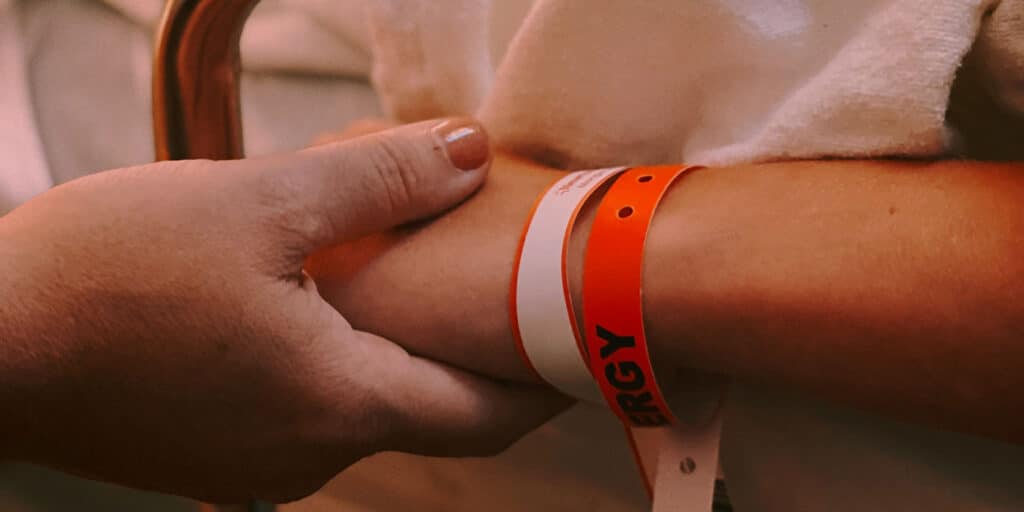CLINICAL SUMMARY
This case involved an 83-year-old female patient with a known history of chronic COPD on 4L supplemental oxygen via nasal cannula, DVT, gout, multiple falls, hypertension and anxiety. She arrived in the emergency department with complaints of shortness of breath that had gotten worse over the previous 24 to 48 hours, especially on exertion. She said she was out of breath earlier in the day with self-measured oxygen saturation in the low 70’s. She increased her oxygen to 5L without significant improvement. She did not have a cough, fever, chills, nausea or any vomiting. Patient also reported intermittent chest pain under the left breast that felt like ‘something catches’ and was impacting her breathing.
 DENIED INPATIENT STAY
DENIED INPATIENT STAY
The patient underwent extensive evaluation including EKG, Troponin levels and chest X-ray — all were unremarkable. The CT angiography of the chest showed a 2-cm adrenal adenoma and work-up with CBC showed a leukocytosis. There was a possible lipoma under left anterior chest that may have been causing her reproducible chest discomfort. The patient was diagnosed with acute hypoxic respiratory failure with acute exacerbation of COPD and was treated with increased supplemental oxygen to keep saturation above 89%, bronchodilator therapy and prednisone.
The patient improved her breathing and was back at baseline supplemental oxygen by hospital day two. She was able to ambulate and maintain an oxygen saturation above 90% on her baseline 4L supplemental oxygen. She recently had pulmonary function testing done and had established care with a primary care physician as well as a visiting home nurse and physical and occupational therapy. She was discharged on oral prednisone on hospital day four.
 PEER-TO-PEER DISCUSSION
PEER-TO-PEER DISCUSSION
The above case was denied by the insurance company, which stated the patient did not show signs/or symptoms severe enough to need services that can only be provided safely and effectively on an inpatient basis. The insurance company also cited no acute respiratory failure, no new-onset hypoxemia that persisted despite observation care treatment, altered mental status, high-risk active acute comorbidity and no signs of chronic COPD that persisted beyond observation care treatment as reason for the denial. In addition, the denial stated there was also no documentation of planned invasive procedures or invasive monitoring.
An AppriseMD physician conducted a P2P with the insurance medical director arguing the need for inpatient level of care services for this elderly patient with a significant past medical history, acute hypoxic respiratory failure with acute exacerbation of COPD who required supplemental oxygen and therapies during her stay as well as extensive work-up for chest pain. This patient’s work-up and treatments required several days of hospital level care. The insurance medical director eventually agreed to inpatient level of care for this patient. The denial was overturned.
OUTCOME: DENIAL OVERTURNED

